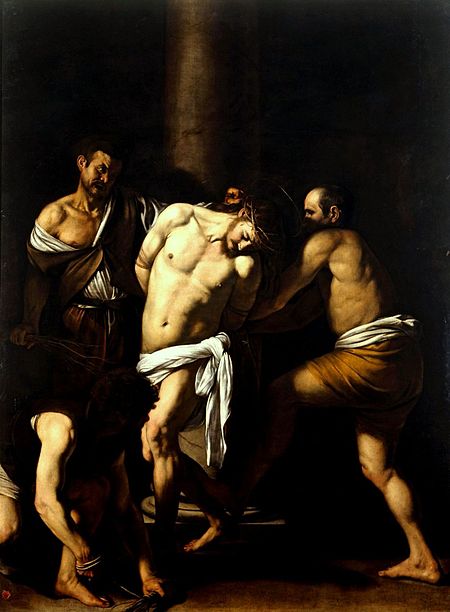“Absence makes the heart grow fonder!” We sometimes hear this expression in a romantic context, as when married or courting couples are temporarily separated and they eagerly look forward to seeing each other once again. And this expression might also ring true if you have eliminated or cut back on some favorite foods, treats, or activities this Lent. Soon the feasting will begin!
Today, we experience a liturgical absence which helps make our hearts grow fonder for Jesus. Being Good Friday, we do not celebrate the Mass but instead we commemorate Jesus’ suffering and death on the Cross. Through the Holy Sacrifice of the Mass we experience in an ongoing way the graces that flow from Jesus’ salvific death and Resurrection, so it is correct to say that Jesus’ sacrifice on the Cross is an eternal sacrifice. But in terms of human history, Jesus was crucified one time only. And so once per year – Good Friday, our liturgy is devoted to Our Lord’s Passion as it occurred in time.1
This focus on Jesus’ Passion is evidenced in today’s First Reading (Isaiah 52.13-53.12), which is the last of Isaiah’s four Suffering Servant oracles. This prophetic reading, written hundreds of years before the Incarnation, begins with a tone of triumph: See, my servant shall prosper, he shall be exalted and lifted up (v.13). And then we read that “he shall startle many nations; kings shall shut their mouths because of him” (15a).2
So, even though we aren’t given many details about the servant’s mission we do know a few things, such as his mission will be blessed and worldwide. And the meaning of the reading becomes clearer as we continue.
For instance, we also read But he was wounded for our transgressions, crushed for our iniquities; upon him was the punishment that made us whole, and by his bruises we are healed (53:5). And then Isaiah states that the servant “poured out himself to death, and was numbered with the transgressors, yet he bore the sin of many, and made intercession for the transgressors” (53:12). Clearly, this description of the Suffering Servant points us to the suffering and death of Our Lord Jesus Christ, who offered Himself for the forgiveness of sins and for our salvation. By His bruises, by His wounds, we are healed (cf. 1 Pet 2:24b).
It is truly wondrous how Christ’s suffering and death leads to the forgiveness of sins and this rebirth we undergo is due to His saving Death, Resurrection, and Ascension, through which we are drawn into a union with the Most Holy Trinity. As we ponder Jesus’ triumphant sacrifice on the Cross it is vital we recognize that, as Catholic-Christians, we also play a key role in the salvation of souls. We are not called to watch Christ carry out the entire salvific enterprise!
Indeed, Jesus suffered and died for our sins, yet in Colossians 1:24 St. Paul writes that I rejoice in my sufferings for your sake, and in my flesh I complete what is lacking in Christ’s afflictions for the sake of [H]is body, that is, the Church. In other words, we are called to unite our sufferings to those of Jesus on the Cross so that others might also turn to Him for forgiveness and be healed from the damage caused by their sins and the sins of those around them.
This is truly an awesome dimension of our Christian life– that we can prayerfully join our challenges, trials, aches, and regrets, all of our sufferings, to Christ and He draws them into His own redemptive offering on the Cross through which all of humanity find their salvation. This union with Christ’s trials was done in a most magnificent way by the Blessed Virgin Mary, who was associated more intimately than any other human person with her Son’s redemptive suffering.3
The transformative power and peace found by uniting our trials to the Cross is what prompted Paul to rejoice in his own sufferings, and it is at the heart of Christ’s invitation to Come to me, all you that are weary and carrying heavy burdens, and I will give you rest (Mt 11:28). So, as we enter into today’s commemoration of Jesus’ Passion, let us grow reverently fonder of His Holy Cross and of the particular ways He calls us to share in this Cross. We adore you, O Christ, and we praise you, because by your Holy Cross you have redeemed the world!
Sources
1 Source: https://franciscanmissionaries.com/why-there-are-no-masses-on-good-friday/#:~:text=And%20therefore%20on%20the%20day,real%20sacrifice%20on%20the%20Cross. (Retrieved April 4, 2023).
2 Source: https://catholicexchange.com/the-suffering-servant/ (Retrieved April 4, 2023).
3 Catechism of the Catholic Church. 618.












